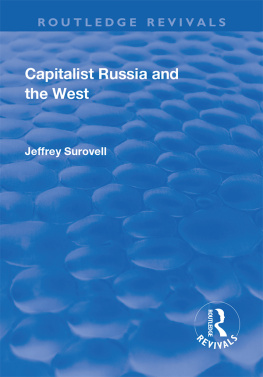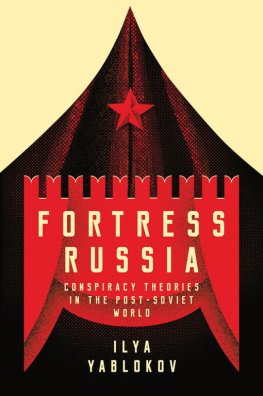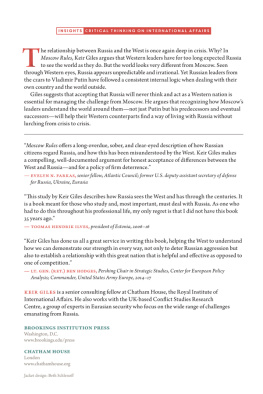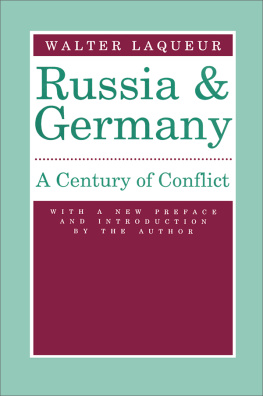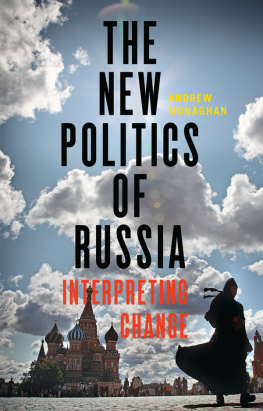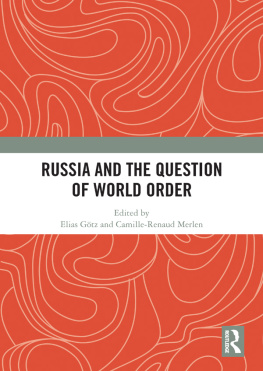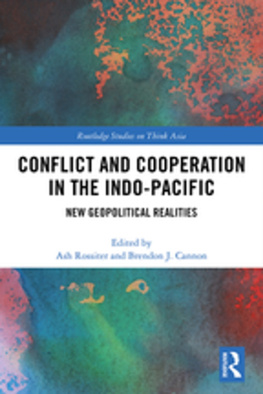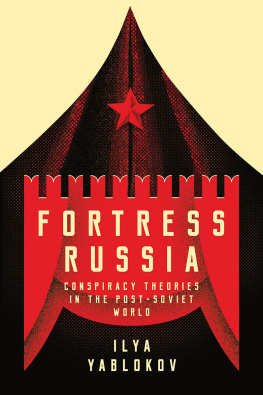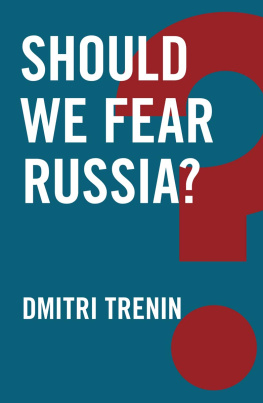First published 2000 by Ashgate Publishing
Reissued 2018 by Routledge
2 Park Square, Milton Park, Abingdon, Oxon OX14 4RN
711 Third Avenue, New York, NY 10017, USA
Routledge is an imprint of the Taylor & Francis Group, an informa business
Copyright Jeffrey Surovell 2000
All rights reserved. No part of this book may be reprinted or reproduced or utilised in any form or by any electronic, mechanical, or other means, now known or hereafter invented, including photocopying and recording, or in any information storage or retrieval system, without permission in writing from the publishers.
Notice:
Product or corporate names may be trademarks or registered trademarks, and are used only for identification and explanation without intent to infringe.
Publishers Note
The publisher has gone to great lengths to ensure the quality of this reprint but points out that some imperfections in the original copies may be apparent.
Disclaimer
The publisher has made every effort to trace copyright holders and welcomes correspondence from those they have been unable to contact.
A Library of Congress record exists under LC control number: 00134015
ISBN 13: 978-1-138-73898-0 (hbk)
ISBN 13: 978-1-315-18445-6 (ebk)
If it is granted that the paramount objective of scientific analysis is explanation,
But there is another side to this sordid affair, one related to but at the same time quite distinct from the aforementioned developments in the domestic sphere and yet which, although just as crucial from the standpoint of Russian-Western relations, has gone practically unexamined by analysts. Its essence was spelled out in an unusually revealing admission by US Treasury Secretary Lawrence Summers at US Congressional Hearings on Russian corruption in September 1999 shortly after the Bank of New York scandal broke. According to Representative Barney Frank, his interrogator at the Hearings, Summers detailed how the tacit endorsement [by the US government and the West] of high-level [Russian] government theft had actually bought the United States [and the West as a whole] some very worthwhile and palpable foreign policy gains, notably Russian... cooperation in Bosnia and Kosovo, some dealings with Iran, some macroeconomic policy, and... relative quiescence in the expansion of NATO.
This was a bombshell of enormous proportions, for it flew directly in the face of the prevailing assumption that, far from being quiescent and cooperative, Russia was in many respects an opponent of Western policy along a whole range of issues, and that Russias leaders, particularly beginning sometime in late 1993, would defend Russian interests vigorously in relations with the West.
Summers testimony should therefore have occasioned an immediate uproar, but was followed instead by a conspicuous silence. Why? The answer lies in one of this studys central arguments: that Russias leaders, in league with their Western counterparts, have engaged in a grand deception to obfuscate the true nature of their relationship, which is characterized above all by Russias acquiescence to and dependency on the West.
With their silence, politicians and specialists in the field have either been unaware of the reality around them or, cognizant of the deception, have chosen to indirectly play along with it by ignoring it, all of which only proves that the famous thesis of Marx and Engels that the ideas of the ruling class are in every epoch the ruling ideaswhich was especially relevant to the field of Soviet studies in the West in light of the historically close ties between that field and governmental policies vis--vis the USSRretains its relevance with respect to studies of post-Soviet Russia, whose mainstream line continues to be closely connected with official government circles. The present study, on the other hand, seeks to depict Russian-Western relations in such a way as to break with this conventional wisdom and, in the process, to pierce the screen of deception and expose, as it were, the emperors new clothes.
Over the years the perpetrators of the deception have employed more sophisticated means, but have been unable to prevent the deception from becoming so transparent as to border on farce. Of the innumerable examples in this regard, a particularly memorable one came from the mouth of the director of Russias privatization and close Yeltsin confidant Anatolu Chubais, who in September 1997 attempted to defend Russian government officials against the accusation that they were agents of the West, of the IMF, and of the Paris Club with the assertion that now [that Russia was accepted as a member as compensation for its acquiescence to NATO expansion] the Paris Club itself becomes an agent of Russia... Chubais boast was so absurd that even Russian sources were compelled to expose this prevarication when they pointed out some two months later that far from being the vigorous power Chubais claimed, Russia played the role of the poorest country by pleading for $2 billion in Western credits.
The deception has, to be sure, gone not totally unrecognized. By 1998 at least with respect to Russias economyit had become so obvious that what would once have been dismissed as wild conspiracy theory had become the conventional wisdom, making it possible for two US economists to argue in an article published in that year that Russia had a virtual economy based on illusion and pretense. In fact, as this study will attempt to show, Russias illusory economy is intimately bound up with the foreign policy pretense perpetuated by Russias leaders. It may be said for just this reason that Russia has had a virtual foreign policy founded on similar illusion and deception.
Having said that, the deception continues to be perpetuated by unofficial and official sources in Russia and the West. And even left forces in Russiathose one would assume most likely to unmask the deception were at least until the late 1990s loathe to directly accuse the Yeltsin leadership of outright deception and sellout, even though they surely knew this to be so. Such a radical figure as Duma member Sergei Baburin skirted around the issue when he remarked that Russian authorities were increasingly open to manipulation by internal and external forces expressing hostile interests. The Foreign Minister and the President himself are exposed to huge pressure, thus shying away from the obvious truth that they willingly sold their country out to Western interests.
Nevertheless, the deception has become so obvious that since the late 1990s references to it by unofficial sourcesjournalists, specialists, etc. have become almost commonplace, although they appear rather more often in Russia than in the West. One commentary thus noted in 1999 that Russian officials pretend to be creating a law-based, market-friendly liberal democracy. We Westerners pretend to believe [them] and whats more, we pay [them] for it. Such admissions, sadly, have appeared only episodically, certainly not as the connecting thread of any full-length study.
The origins of the deception trace back to post-Soviet Russias honeymoon period with the West, dating roughly from late 1991 to late 1993 and characterized by a Westernism on the part of the Yeltsin leadership so unabashedly obsequious that among Russians Foreign Minister Kozyrev earned the moniker of Mr. Yes. But a seismic shift took place in August 1993 when, while on a visit to the Central and East European (CEE) capitals of Warsaw and Prague, Yeltsin openly acquiesced to the expressed desire of those governments to join NATO. The strategic implications of this demarche were so dangerous for Russias security that the previous open acquiescence to the West which had characterized much of Russian policy was no longer an automatic option for Russias leaders, especially in view of the ongoing and terrible effects of the pro-Western reforms which were impoverishing the Russian people and decimating Russias governmental structures and armed forces. In light of these factors Russias leaders, Westernizers through and through, undertook from this juncture a policy of concealing their pro-Westernism even as they continued to comply with Western dictates.

